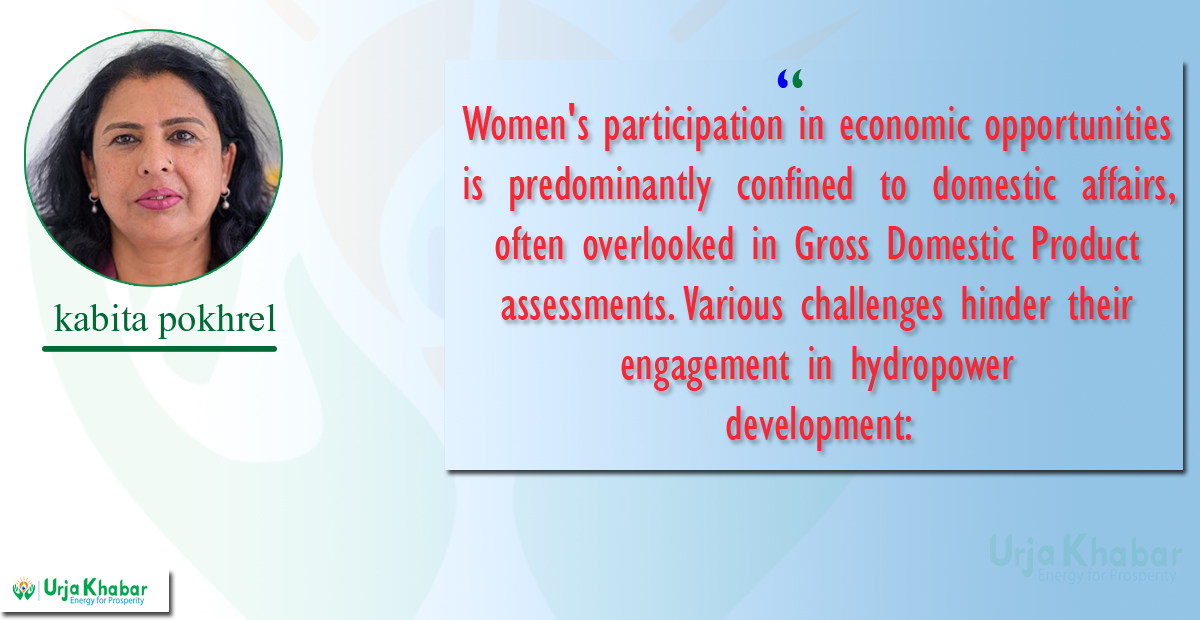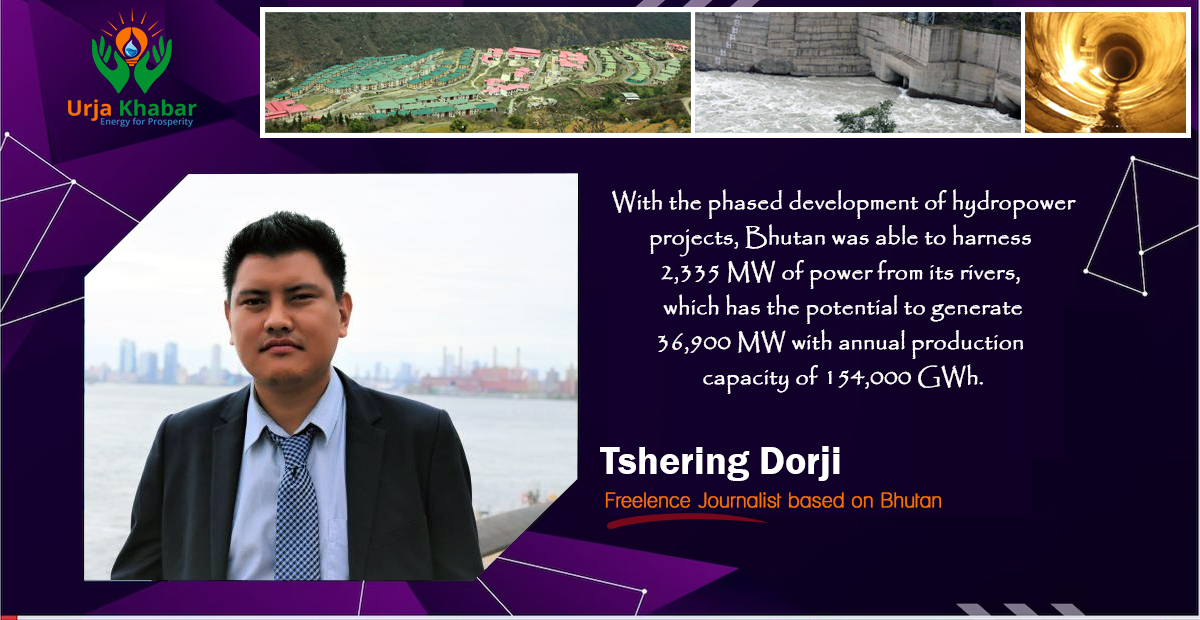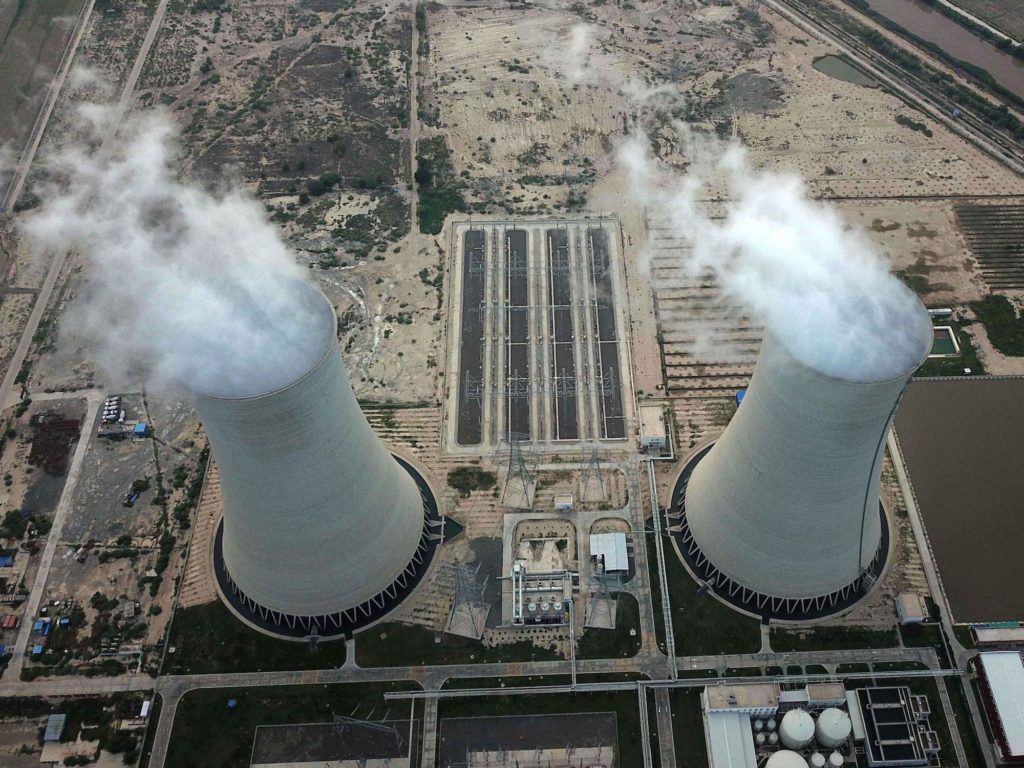Energy Update
Overcoming Barriers to Women’s Partnership in Hydropower: A Holistic Approach

Nepal, endowed with over 6,000 rivers and rivulets, possesses vast potential for hydropower generation, playing a pivotal role in the nation's energy system and economy. Despite having a massive economically feasible generation capacity, only a fraction, a mere 3,000 MW, has been harnessed to date. The country stands to gain significantly from regional collaboration, inviting investment, technical support, and trading opportunities. Before 1992, the Nepal Electricity Authority (NEA), a state-owned entity, held exclusive control over electricity production, transmission, and distribution.
However, the Electricity Act of 1992 and the Hydropower Policy of 2001 paved the way for private investors, marking a significant uptick in power generation activities since their entry. Electricity distribution now reaches 95 percent of the population. After enduring years of load-shedding that concluded in 2019, rationing has become a thing of the past. The private sector's pivotal role in boosting power production has positioned the country historically to export electricity.

CHALLENGES OF WOMEN'S PARTICIPATION IN HYDROPOWER
Despite women constituting more than half of the total population, their involvement in entrepreneurial activities within the hydropower sector remains disproportionately low. Women's participation in economic opportunities is predominantly confined to domestic affairs, often overlooked in Gross Domestic Product assessments. Various challenges hinder their engagement in hydropower development:

Socio-cultural Realities: In Nepal's patriarchal society, decision-making power is predominantly held by males, limiting women's ability to challenge decisions. Access to property and finance remains restricted for women, impeding their contributions to investments and entrepreneurship. Deep-rooted pro-male social norms, household responsibilities, limited mobility, and societal acceptance curtail women's space in the economy.
Limited Economic Opportunities: Women face significant limitations in economic opportunities, further marginalizing them and hindering their self-reliance. Contributions such as household chores, farm activities, and child-rearing, although crucial, often go unrecognized in economic assessments. Addressing these challenges is imperative for unlocking the full potential of women's contributions to Nepal's hydropower sector and fostering a more inclusive and sustainable future.
Limited Access to Finance: Limited access to low-cost funds stands out as a critical hurdle for women progressing in business. While securing finance is paramount to facilitating women's entrepreneurial ventures, they encounter difficulties obtaining the necessary funds.
Limited Knowledge and Skill: Insufficient literacy and exposure to formal education and vocational capacity enhancement activities emerge as major constraints hindering women's participation in public meetings and business engagements. The hydropower sector is no exception, with limited opportunities for female human resources.
Difficult Topography: Challenges related to difficult topography pose obstacles for women seeking opportunities in hydropower project jobs. Consultation meetings are often organized in market centers and accessible locations, which are typically distant from project-affected communities. Public hearings and consultations, held in better-off locations, further limit the participation of women and the least privileged individuals due to travel constraints.
Lack of Information: In an age dominated by information technology, the scarcity of information about opportunities and resources available to women in the sector remains a significant barrier. Without adequate knowledge about business and job opportunities, women are unable to participate fully in the sector, hindering their economic empowerment.
Note: We analyzed the data of 47 hydropower companies listed in the Security Board of Nepal as of 2022 and found women's participation as below:
Way forward
Addressing these multifaceted challenges requires a comprehensive strategy that encompasses financial inclusivity, educational empowerment, geographical accessibility, and information dissemination. By adopting a holistic approach, Nepal can create an environment where women have equal opportunities to contribute to and benefit from the hydropower sector, fostering sustainable and inclusive development.
Both the government and the private sector play pivotal roles in fostering sustainable hydropower development in Nepal for long-term business growth. Initiatives such as the 'Hydropower Environment Impact Assessment Manual 2018' focusing on gender-related impacts during assessments underscore the need for inclusive participation, with particular attention to women's involvement. The government can create an enabling environment for women by integrating gender considerations into national, provincial, and local level plans and policies. Measures such as providing reservations for females in political candidacy and civil services, enforcing laws granting property rights to women, offering tax incentives, and facilitating access to finance for women-led enterprises can significantly empower women economically and socially.
The Company Act's provision for at least one female director in public limited companies is a positive step, providing opportunities for women to engage in business. Encouraging more women to participate in decision-making roles within corporations can contribute to a more inclusive and diverse business environment. International organizations can contribute by organizing capacity-building programs, seminars, and conferences to enhance women's knowledge and skills, unlocking their potential in the hydropower sector. Mentorship programs can further support women entrepreneurs in navigating the business landscape.
The private sector can contribute to women's empowerment by encouraging young girls to enroll in STEM fields, ensuring a pipeline of skilled professionals for the industry. Providing networking opportunities for women within the sector can help foster a supportive community. Prioritizing women and vulnerable groups in hydropower projects can contribute to sustainable development. Encouraging clean energy adoption not only benefits women's health but also reduces environmental impact, aligning with global sustainability goals.
In conclusion, collaborative efforts from the government, private sector, and international agencies are essential to overcoming challenges faced by women in Nepal's hydropower sector. Empowering women not only fosters gender equality but also contributes to sustainable and inclusive economic development, benefiting the entire nation. By addressing these challenges and implementing inclusive policies, Nepal can harness the full potential of its water resources, paving the way for a brighter and more equitable future.
Pokhrel is the secretary of Independent Power Producers Association, Nepal (IPPAN), This article is taken from a memoir titled ‘Urja Samriddhi‘ published by IPPAN on 18th january, 2024.
Conversation
- Info. Dept. Reg. No. : 254/073/74
- Telephone : +977-1-5321303
- Email : [email protected]













